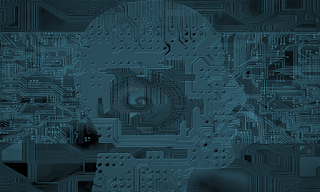The Pros and Cons of Artificial Intelligence
Artificial Intelligence (AI) is a rapidly developing field that has the potential to bring about significant changes in a wide range of industries. However, like any new technology, it also comes with its own set of pros and cons.
One of the major benefits of AI is its ability to automate repetitive tasks, which can lead to increased efficiency and cost savings. For example, in manufacturing, AI can be used to optimize production processes, which can reduce costs and improve the quality of products. Similarly, in healthcare, AI can be used to analyze large amounts of data, which can aid in the early detection of diseases and improve the accuracy of diagnoses.
Another benefit of AI is its ability to improve decision-making. By analyzing data and identifying patterns, AI can help businesses and organizations make better decisions. This can be particularly useful in fields such as finance, where AI can be used to analyze market trends and identify profitable investment opportunities.
AI also has the potential to improve safety and security. For example, self-driving cars powered by AI can reduce the number of accidents caused by human error, while AI-powered security systems can improve the detection of potential threats.
However, there are also several potential downsides to the use of AI. One of the biggest concerns is the potential for job loss, as automation driven by AI can lead to the displacement of human workers. This is particularly true in industries such as manufacturing and transportation, where many jobs are already at risk of being automated.
Another concern is the potential for bias in AI systems. Algorithms are only as unbiased as the data they are trained on, and if the data contains biases, the AI system will as well. This can have serious consequences, such as discrimination in hiring or lending decisions.
Additionally, AI systems can be vulnerable to hacking and other forms of cyberattacks, which could compromise personal data or cause other types of harm.
Finally, there are ethical concerns surrounding AI, such as the potential for AI systems to be used for nefarious purposes, such as creating autonomous weapons.
In conclusion, Artificial Intelligence has the potential to bring about significant benefits, including increased efficiency, cost savings, improved decision-making, and improved safety and security. However, it also poses a number of potential downsides, such as job loss, bias, cybersecurity risks, and ethical concerns. Therefore, it is important to consider these potential downsides and take steps to mitigate them while reaping the benefits of the technology. As AI continues to evolve, it will be crucial for society to have open and honest conversations about the implications of this technology and to work together to ensure that it is used in ways that benefit everyone.



Comments
Post a Comment